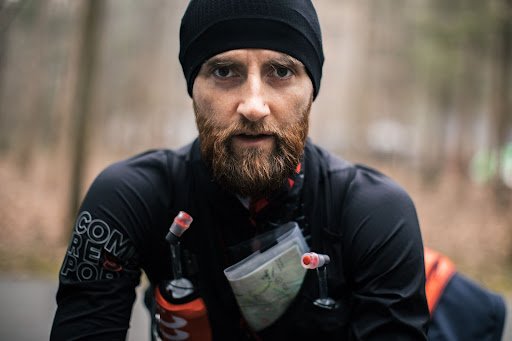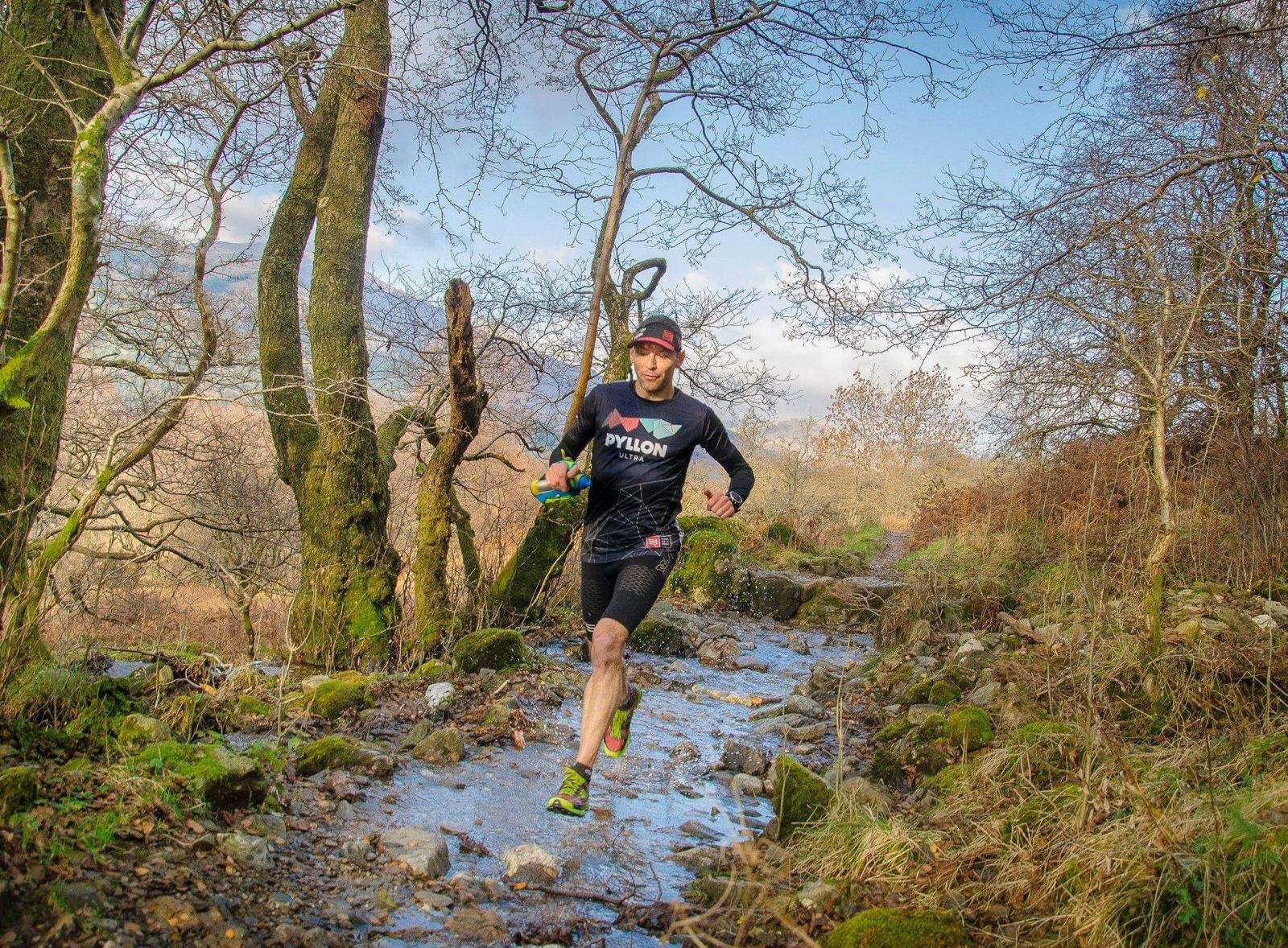A collaboration between Ali Hall and Paul Giblin
Paul Giblin is the brains and inspiration behind Pyllon. As someone who shies away from the limelight, he can be a bit of an enigma. Much like the native Scottish red squirrel, he is happiest in nature, avoiding the masses and without drawing attention to himself.
I’m hoping this short Q&A session will highlight the fun, sensitive, goofy and human side of our friend and community founder.
Are you ready?
If you didn’t run what would you do instead?
So many things I’d do if I didn’t run! Where do I start?
I’d do more with music. I got into music from a very young age. Started collecting vinyl when I was still in school and DJ’d all through my 20’s. I still do quite a bit now, but I just don’t have the time to be focused enough. There’s still a Mercury Music Prize in me yet - might just have to wait a few more years 😀
I’d likely bag a few more big mountain peaks. Again - ultra running takes over and hasn’t left me enough time to do more. I had intentions of doing more paragliding when I lived in Chamonix but I was either running or recovering.
I have really enjoyed training Mya (my dog), and we hope to do some IGP trials with her. But much like running it requires a lot of time, so I’m not pushing it too much and I am making plenty of mistakes along the way. Learning a lot, but realising I don’t even know the full scale of what I don’t know! :D There are lots of parallels to coaching runners, to be honest - if there is enough drive, then it's a guidance, teaching, and confidence-building role.
I’d shoot more photos and videos. I’d draw and paint more. The creative stuff I really love and miss when life takes over.
There’s maybe 10 other things I’d love to do more of, but I’d never sleep or do anything well if I took those on too.
Have you any running habits that are slightly quirky?
Quirky? I’m not sure. I don’t like to change things much when I’m out running. I’ll rarely stop to take a top off if it’s too hot or change my shoes unless they are causing me serious pain. So, I might be in some discomfort overall, but I accept it and forget that I maybe can reduce the discomfort with a change. Is that quirky?
I also like to run barefoot the day before a race on the dirt I’ll be running. I’ve done it for years. I know there’s no benefit, but I guess it’s a ritual, and rituals have the capacity to calm nerves.
What’s a standout running moment for you?
I’ve had lots of great moments. It would be easy to list a bunch of race wins and solid performances. And they’ve been awesome. But actually, it’s been about running with people. Sharing some trails or doing a race with a great crew and feeling part of a team - on a mission together. You’ve worked super hard to achieve something, and there are people around you who know and care as much as you do.
When I think back to the End2End trail, for example - whilst it was obviously a real slog at over 2,000KM, there were so many small, wonderful moments across the four weeks. Conversations and laughs, meeting strangers in a field who had come out to run with me for an hour, friends turning up, kind words, smiles, and shared meals. That’s the stuff that really matters.
There is a lot of heartache, too, but I guess those become standout moments too. That’s where you are presented with choices. How will you deal with a setback, and what trail will it lead you down in life?
How long have you been running for?
I’m not sure to be honest. For about 14 - 15 years now. I think I always under-estimate, so this could be way off!
How did you start running?
Same as lots of people really - in the gym! I became very conscious of my health and general lack of fitness. I started warming up on a treadmill and it grew from there. Very quickly!
What is your greatest non-race running achievement?
I guess running across the UK was an achievement. I loved running the Outer Hebrides years ago. My Dad came out to rescue me in the second half; it was just him and me at the finish. Those times I’ll never feel again. I actually did a few YouTube videos of it before vlogging was big. I’m sure they’re awful compared to today’s standards. I can’t bring myself to watch them as I miss my Dad so much, and it’s easier not to think about it. I’m glad I did that. And I’m really glad and grateful for the Pyllon Endeavour and XP events that we have done. I’ve met so many cool people and made a few friends that I’m lucky to still have.
What animal are you?
They say dogs reflect their owners, right? So, I’m a little Belgian Malinois. Pretty determined, keen to be outside, can get super-focused on stuff, and be quite wary of new things and new people.
I take a long time to get to know other people and to trust their intentions I guess - but when I do, I just want to help and be there for them. I can’t run as fast or bite as hard, but I’m fairly nimble on any terrain!
In all honesty, I’m not half the athlete of a Malinois. But it’s okay to have role models, right?
What is your ultimate running song?
Ooof. I really struggle with giving a single favourite anything! It has to be something that swells some emotion in me if I’m looking to push hard. I'm a huge fan of electronic music, so I’d normally go there. But it depends on where I’m running and the mood of the place.
Running in a forest has a very different feel to a tempo session on a cycle path. Something with a minimal syncopated beat for hard sessions and something organic that takes you on a journey over a beautiful trail through a forest. Techno to jazz and everything in between kinda covers the spectrum of the music I like.
A massive thanks to Paul for being a good sport and humouring my silly questions. If you are interested in working with Paul and allowing him to help you achieve your dreams, contact us here.









